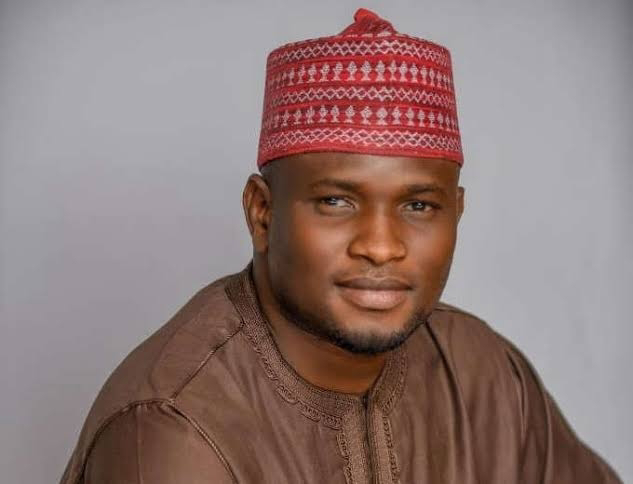SANUSI BATURE, AN ACCIDENTAL SPOKESMAN: THE REJOINDRER
Re-Sanusi Bature, An Accidental Spokesman by Muazu Muazu - Haruna Abubakar Bebeji
As a concerned observer of the political landscape in Kano, I feel compelled to respond to the disparaging article titled "Sanusi Bature, An Accidental Spokesman" by Muazu Muazu, which unfairly critiques the position and capabilities of Malam Sanusi Bature Dawakin Tofa. While I have never met Sanusi and am not affiliated with the New Nigeria Peoples Party (NNPP) — indeed, I am an ardent member of the All Progressives Congress (APC) — I find it disheartening that personal bias and unfounded allegations have overshadowed the achievements of a respected journalist.
Firstly, Muazu's assertions about Sanusi’s qualifications and capabilities as a spokesman fail to recognize the depth of his professional background. Sanusi Bature, also known affectionately as "SaBature," is a seasoned journalist with an impressive track record that spans nearly two decades across various reputable media organizations both nationally and internationally. His stint at Freedom Radio, an indigenous station renowned for its meritocratic approach, speaks volumes about his qualifications. It is essential to acknowledge that Sanusi has attended numerous training programs, both in Nigeria and abroad, which has enriched his skill set and made him a valuable asset in the field of public relations.
Muazu contends that Sanusi lacks passion and has failed to embody his role as a government spokesman. However, those who have had the privilege of working alongside him or engaging with him professionally will attest to his dedication, commitment, and ethical approach to his responsibilities. It is no simple task to manage the complex dynamics within a governmental framework, especially in a politically charged atmosphere. Furthermore, the notion that Sanusi is merely a messenger who inadequately translates issues into engaging narratives is both trivializing and unfounded; good communication in a PR role often transcends mere messaging—it encompasses the ability to navigate nuanced political landscapes and articulate them effectively.
Another critical point that Muazu raises is Sanusi’s interaction with journalists, portraying him as unapproachable and dismissive of their needs. Such claims, however, starkly contrast with the experiences shared by other journalists in Kano. In my interactions with fellow journalists, there has been an overwhelming sentiment of respect for Sanusi’s professionalism, kindness, and ability to create meaningful relationships within the media community. The insinuation that he restricts access or corners benefits reflects a misunderstanding of the multifaceted challenges faced by a government spokesman, whose primary responsibility often includes managing sensitive information amidst a barrage of inquiries.
While Muazu claims Sanusi has continually attacked elected leaders from his constituency, it is imperative to consider the context and the complexities of political relationships. A spokesperson must sometimes navigate difficult conversations with composure and professionalism, which is an inherent aspect of political engagement. Any effective public representative must reflect upon their successes and failures, and it seems unjust to label Sanusi as confrontational without acknowledging the necessary scrutiny that comes with governance.
Furthermore, it is vital to recognize that loyalty in politics is often paramount—the kind of loyalty embodied by Sanusi during Governor Abba Kabir Yusuf’s campaign and subsequent rise to power. His steadfast support for the governor amidst attempts from rival political parties to lure him away underscores Sanusi's dedication to his principles and the leadership he serves. Loyalty is a virtue that should not only be acknowledged but celebrated, especially in a political environment that often lacks it.
In conclusion, I find it apparent that Muazu's critique of Sanusi Bature is less about accountability and more about personal grievance or jealousy. Detractors must remember that public figures often face scrutiny that can spiral into unfounded criticism based on personal grudges rather than objective assessments of their character and contributions. Instead of vilifying Sanusi, it would serve the greater good to uplift and encourage professional dialogue that holds individuals accountable without resorting to disparagement.
Sanusi Bature deserves recognition and appreciation for his contributions to media space and society at large and his role in advancing the principles of governance in Kano. In a time when fairness and justice in judgment are of utmost importance, I urge readers to look beyond the sensationalism and understand the broader picture. It is my hope that in the quest for a better discourse around those in the corridors of power, we can celebrate achievements rather than focusing on personal vendettas.
Haruna Abubakar Bebeji
PenBebeji
08033064022
ha.bebeji@gmail.com
I'm a passionate writer, content manager and blogger from Kano, Nigeria. I started writing online about politics, governance and day-to-day issues to share my thoughts, ideas, and experiences in this space. Over time, my blog has become a space for me to inspire, motivate, and entertain others. I'm committed to bringing engaging, quality content that will help make anyone's life just a little bit better. I love to explore new topics, review products, and discuss the latest trends in politics and governance. I write in both English and Hausa and as a certified International Translator and Interpreter, I Translate from English to Hausa or Hausa to English. When I'm not writing, managing or creating content, you can find me outside enjoying nature, reading, or spending time with family or friends.
Thanks for visiting my page.
I hope you come back for more great content!






Comments
Post a Comment